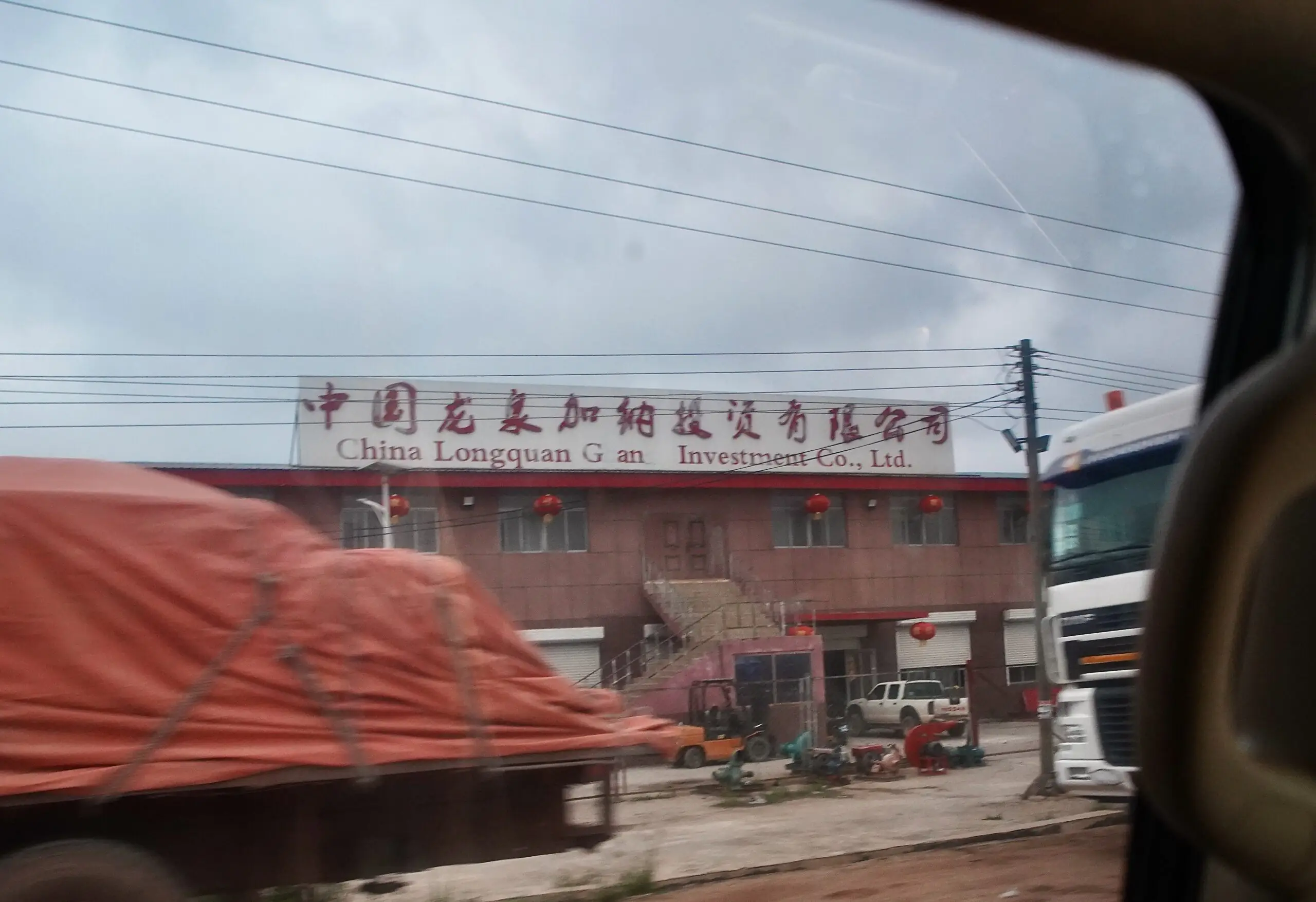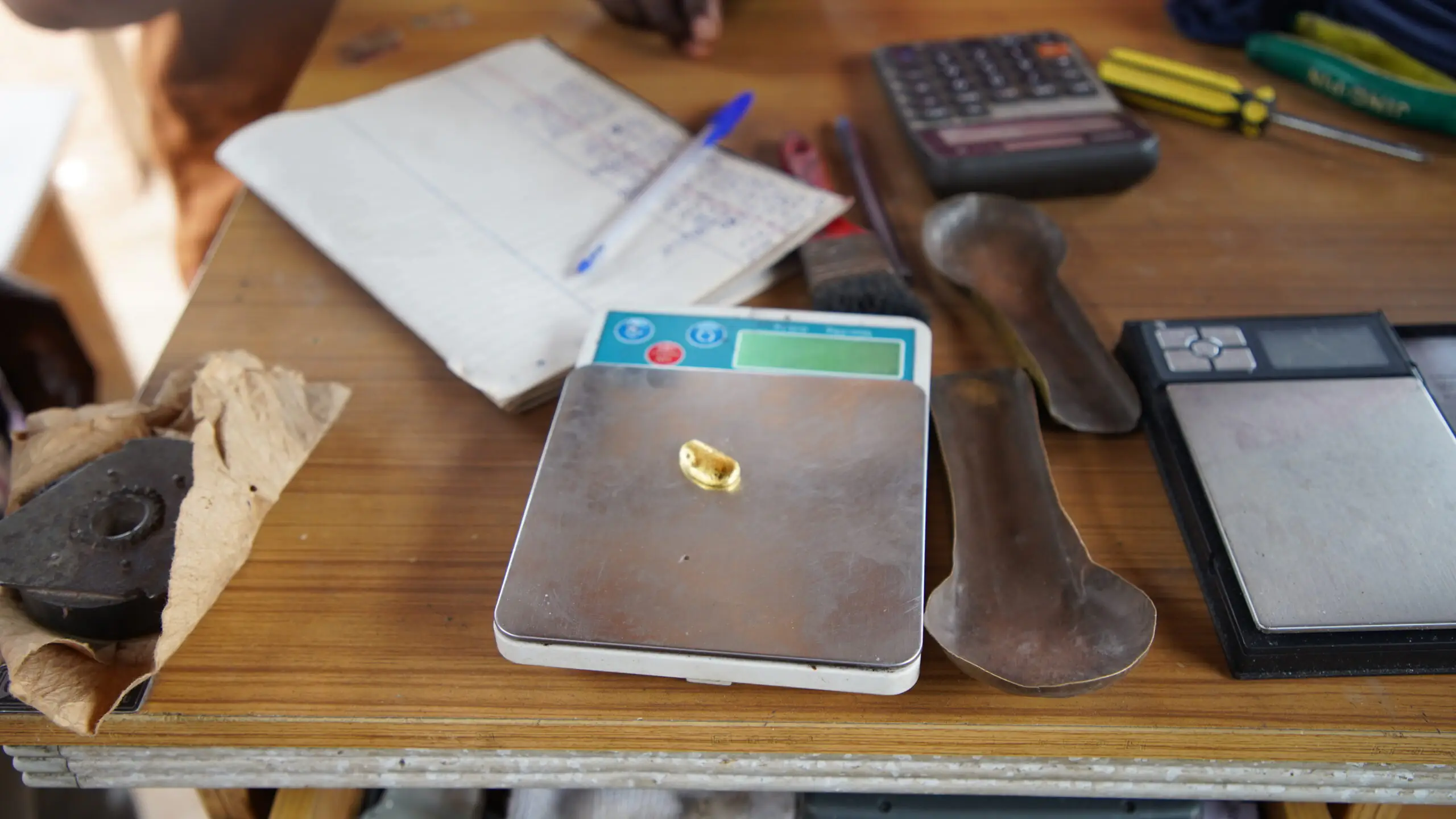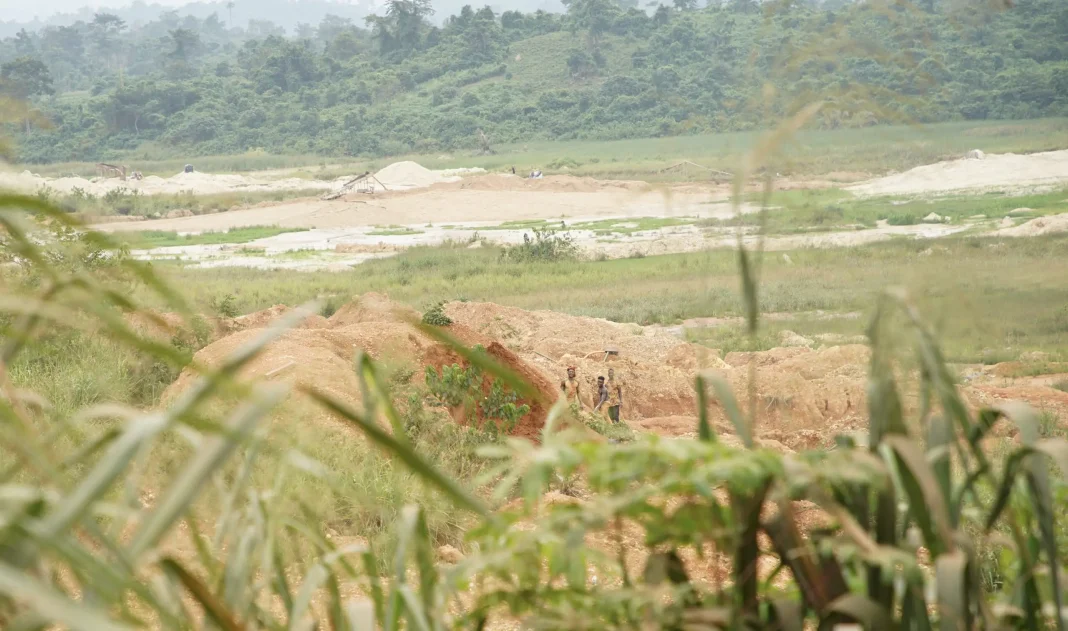Ghanaian President Makes Promises
Ghanaian President Mahama’s government is making numerous promises to retain foreign investors frightened by the explosion of criminal practices in the gold sector. Among them: the revision of license allocations, the centralization of exports via a new office, the GoldBod, and increased police operations. Faced with the extent of illegality revealed by our analysis, neither the Ministry of Lands and Natural Resources nor GoldBod responded.
Between late March and early August, we recorded 26 police operations against illegal mines. In total, 306 arrests were made during these raids. In this context, the voices of legal artisanal miners struggle to be heard — something Michael Kwadwo Peprah knows all too well. “I ask every person who sells me gold where it comes from,” said Peprah, the head of an association of artisanal miners.
A few days before meeting with our reporters, the police arrested Peprah during an anti‑galamsey operation, accusing him of obstructing the arrest of illegal miners in the middle of a forest reserve. He criticises the authorities for acting too brutally, fearing “unauthorized seizures, with individuals impersonating security agents to extort money from miners.” Without being able to provide further details, Peprah hopes that Ghana will be able “to guarantee the traceability of gold through a software” that is due to be launched by the end of the year.
For now, police efforts do not seem to be making a dent, and for many professionals, Ghanaian gold still smells like trouble. “Are we seeing a meaningful appetite to actually engage with the rules set out by the London Bullion Market Association, OECD and the likes? We don’t think that the current administration is complying, so we’ve had to walk away,” said an expert from a large U.S. intermediary in gold purchase, speaking on condition of anonymity.
This view is shared by Alan*, who works as a consultant in the artisanal mining sector in Ghana. “If I told you that by the end of the year, or even next year, everything will be transformed, that would be a lie. It will take time. It will take effort,” he said.

Not everyone has the same reservations. Chinese nationals, for example, are regularly singled out because of their involvement in illegal gold production. But John, the buyer in the small village of Dawusaso, knows other key players in this clandestine business.
“I sell the gold to Indian traders in Kumasi. Not in a shop: in a house without any signs. They don’t ask me where the gold comes from… and I don’t know their names,” he said. On-site checks confirm that the location does indeed have equipment for refining gold. In Ghana, Kumasi has become a hub for the precious metal, which is bought there for cash before being redirected to the capital of Accra and then exported across the world — including Southeast Asia.
Indian traders, Ghanaian frontmen
For several Indian traders the method is simple: they buy at a higher price than on the legal market. Kofi*, an unlicensed buyer in the region, estimates that the price difference is nearly 20%, or about Rs 14 lakh for a kilogram of gold. For discretion, our reporters met him in his car, on a vacant lot in the suburbs of Kumasi. “On the black market, you can sell to the Chinese traders or to the Indian traders. You schedule a meeting over the phone and meet them directly in their homes,” said Kofi, who claims to buy and resell 15 kg of gold per year — the equivalent of Rs 16.9 crore in value.
Since April 30, 2025, however, foreigners no longer have the right to buy or sell gold on the local market, in order to prevent gold from disappearing without benefiting the state’s coffers. But this new measure is easy to circumvent. “To keep up their business, if it’s a company buying the gold, they’ll put a Ghanaian in front, so as to keep operating,” explained Kodjo*, who owns a legal gold mine in the region and has worked in the sector for three decades.
One example is the company Unique MM, which experienced a highly publicized police raid in late April. Indian traders had been hiding behind a Ghanaian frontman, according to authorities, and the gold purchased from artisanal mines in Kumasi was being illegally shipped to India. Unique MM did not respond to our questions.

India has also been involved in another gold‑trafficking case that made headlines in Ghana recently. This time, it was an Indian company that the authorities caught in their nets. Suspected of having bought 100 kg of gold on the black market in two months, from a Ghanaian intermediary in the country’s southwestern mining basin, the company was severely punished. Its jewelry shop in the capital of Accra was immediately closed, and its directors and presumed associates were arrested or placed on a wanted list, with a hefty reward of Rs 71 lakh. The lawyers representing the company denied any wrongdoing but did not respond to our questions.
But these rare publicly exposed cases are unlikely to dry up artisanal gold production. Tons of that gold are exported completely legally by GoldBod, the new state authority that centralizes the country’s gold before export to counter trafficking — even if it means laundering gold from illegal mines. During a press conference on Sept. 10, President Mahama himself said that whether the gold was from legal or illegal sources, Ghana should “get the benefit of it.”
It’s worth the risk: between January and August 2025 alone, nearly 67 tons of artisanal gold, representing more than Rs 50.8 thousand crore, were shipped. Compare this to 63 tons of gold, equivalent to nearly Rs 40.6 thousand crore, from industrial mines.
India is the 6th largest importer of this increasingly sought-after metal. According to commercially available customs data that we reviewed, no fewer than 13 tons of gold departed from Ghana for the subcontinent between late May and mid‑August 2025. Eight of those tons passed through GoldBod. On some days, such as June 3, 2025, more than 600 kg of gold landed in India.
There was only one buyer for GoldBod: Sovereign Metals Limited, a company from India’s northwestern state of Gujarat, which purchased gold bars that were more than Rs 7000 crore. It’s a reflection of the country’s immense thirst for gold, which is prized both as a financial investment and in the form of jewelry for weddings or traditional ceremonies. By permitting the export of illegally mined gold through GoldBod, the Ghanaian government enables traders like Sovereign Metals Limited to acquire the precious metal, which has been effectively laundered of its illicit origins.
Sovereign Metals Limited, which reported revenues of nearly Rs 4986 crore in 2024, is part of a group of companies specialised in precious metals and offering refining, trading and jewelry manufacturing services.
“These are groups that try to control as much of the supply chain as possible, from importation to the sale of jewelry,” explained Marc Ummel from Swissaid. “In general, they sell imported gold mainly on the Indian market in the form of jewelry, and a small portion internationally,” he continued, citing the United Arab Emirates as a popular destination.
At the helm of this bling empire is the Indian Lodhiya family, a dynasty in the sector. The current CEO of Sovereign Metals Limited represents the fourth generation to trade in gold and silver. When asked about the precise origin and legality of the gold sent to India, GoldBod didn’t reply. Same silence from Sovereign Metals Limited, whose website claims “responsible sourcing and ethical business practices.”
*Names have been changed to protect the anonymity of those involved.
